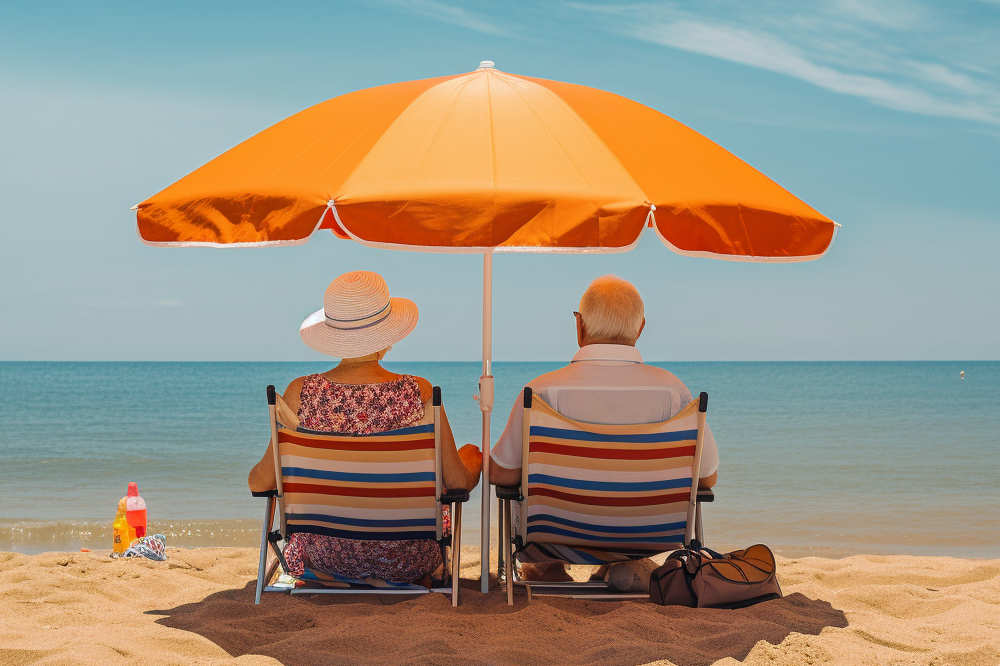Global Warming Brings Unprecedented Heatwaves
If the thought of heat occupies your mind, you’re certainly not alone – especially considering that, in the Northern Hemisphere, we are still amidst the summer months. The globe experienced three of its hottest days within a single week at the beginning of July. Wildfires raged throughout Canada earlier in the summer, and Expat Focus spoke to a number of people resident on the North American seaboard who were experiencing city-wide curfews as a result of smoke drifting down from the north.
Europe has begun to formally label its heatwaves – recently, the continent encountered Cerberus, aptly named after the sentinel of the Greek underworld. Presently, Europe anticipates a second wave known as Charon, a reference once again rooted in classical mythology. Meanwhile, in South Korea, the global Scout Jamboree has succumbed to an ‘unprecedented’ heatwave, coupled with other disasters. Notably, the heritage town of Lahaina on Maui faced a near-apocalyptic scenario, enduring the devastation of wildfires exacerbated by a hurricane. Over 100 individuals have been confirmed deceased or missing.
Elderly Expats at Risk in Hotter Countries
The situation is so severe that the UK Foreign Office has issued a set of guidelines for expats and Brits abroad, who may not be used to high temperatures. There is particular concern for elderly expats, who may have moved to Spain, Portugal or Greece for a sunnier climate. The Daily Telegraph reported that over 61,000 people in Europe died from the heatwaves in 2022. One British expat told the Daily Express in June 2023 that the situation in their part of Spain resembled lockdown, with temperatures reaching 30 in the evening, with people essentially trapped in their homes. One local British estate agent told the press that local bars and restaurants were empty during the usually busy evening period. In addition, locals are concerned about water shortages.
Older people are at risk from high temperatures. As we age, regulating our body temperature becomes more difficult, it becomes harder to discern whether we are dehydrated, and we become more susceptible to heatstroke. It’s not just physical health which is a matter for concern: stress, anxiety and depression can be exacerbated by the heat too. Suicide rates apparently rise during heatwaves. Elderly people may experience isolation in heatwaves, and may also have limited access to air conditioning. The World Economic Forum reports that:
“Research has found that for every 1C increase in monthly average temperature, mental health-related deaths increase by 2.2%. Heat waves also impact cognitive ability, increasing aggressive behaviour and violent crime rates.”
Ways of Dealing with the Heat
Considering this, our wellness update this month will look at ways to deal with the heat and how to safeguard both your physical and mental health during a heatwave.
The following suggestions have been taken from the UK government guidelines and other mental health websites:
- Keep an eye on neighbours or relatives who might be struggling, especially if they live alone
- Have a designated ‘cool area’ indoors: close the curtains or blinds, set up a fan or a portable air con unit if you can. If cross-ventilation is a possibility, make sure that doors and windows elsewhere in the house are open to facilitate this
- Remember that it may be cooler outdoors than indoors, but keep out of the sun between 11am to 3pm, when the UV rays are strongest. If you are out and about, walk in the shade, remember your sunscreen, and wear a hat. Also don’t do too much – long walks and exercise are best avoided
- Drink lots of fluids, including plain water, and avoid too much alcohol
- Make sure you take water with you whenever you go out; some people recommend freezing a bottle of water and carrying it with you, so that it slowly defrosts throughout the day and you have cold water to hand (bear in mind that this might be heavy!)
- Check that equipment such as fridges, freezers and fans are working properly
- Check that any medication that is affected by heat is stored in a cool place if necessary
- Don’t leave children or animals (or indeed, yourself) in a closed, parked vehicle
- If you are spending a day at the beach, check out local safety advice before you go, including any advice about swimming
- Wear light, loose fitting clothing
- Stick to light cold meals such as salads (although anyone who has spent time in India will recommend curries!)
- At home, make sure you have emergency supplies such as a cannister of water and battery-operated fans
- If you have a suitable flat roof, consider putting some plants up there – tree shade and plant shade and water retention can keep temperatures down
- Be aware of signs of heat-related distress: confusion, lethargy, dizziness, nausea, rapid heartbeat
Above, we also mentioned the risk of wildfires. Take care not only with any naked flames but also with glassware – many fires are caused by the sun shining through broken glass, for instance. Smoke can cause serious breathing difficulties for people with asthma or respiratory disorders. If you are in a wildfire area:
- Reduce your exposure to smoke by staying indoors with the doors and windows closed
- If you’re travelling through an area affected by smoke make sure that your vehicle windows are closed and the air conditioning is switched to recycle or recirculate
- Take note of local safety advice
The rise in temperatures is unfortunately unlikely to go away. Research suggests that this will be an ongoing problem. It’s worth trying to ensure that you’re in a position to safeguard both your mental and physical wellbeing in these times of changing temperatures.

